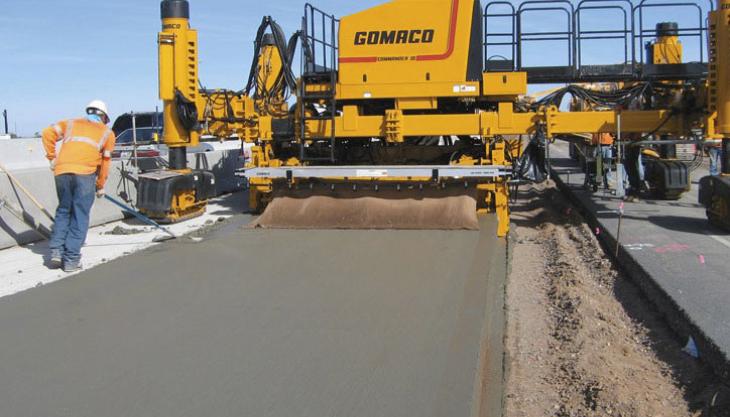Research finds concrete roads save fuel costs

Latest findings confirm that driving on concrete roads can significantly reduce fuel consumption
NEW research carried out by the Massachusetts Institute of Technology Concrete Sustainability Hub – the first work of its kind to use mathematical modelling rather than field trials – has found that the decreased deflection of stiffer concrete pavements could reduce fuel consumption by up to 3%, and that in the US more than US$15 billion in annual fuel costs could be saved.
Deflection, which occurs when a vehicle’s tyres roll along a pavement, has the effect of making the vehicle drive continuously up a slight slope, thereby increasing fuel usage. The effect is similar to the energy and effort required when walking on beach sand.
The research produced a rigorous mathematical model relating fuel consumption to mathematically predicted pavement deflection. It found that stiffer concrete pavements reduce this deflection.
The study has been welcomed by the infrastructure group Britpave as further proof of the whole-life cost and life-cycle sustainability benefits of concrete roads. It says the findings of the Sustainability Hub underline those of a recent report, ‘Concrete Pavements Contribute to Decarbonising of Transport’, from Eupave, the European Concrete Pavement Association.
This pulled together the results of a number of independent international research studies which compared the fuel consumption of heavy good vehicles using concrete and asphalt road surfaces, and examined the impact of a number of factors, particularly that of rolling resistance which has a direct influence on tyre–pavement interaction and, therefore, fuel consumption and CO2 emissions.
The studies found that stiff and rigid concrete road pavements exhibited significantly reduced fuel consumption by heavy goods vehicles compared with flexible, deflection-prone asphalt pavements.
The Eupave research reported savings of up to 6.7%, which would not only offer significant financial savings but, given that road haulage in Europe produces around 40% percent of transport CO2 emissions, significant environmental benefits too.
Eupave examined research carried out by the National Research Council in Canada, the Transport Research Laboratory in the UK, the Swedish National Road and Transport Institute and Lund University and the Nippon Expressway Institute in Japan.
Additional research carried out by the Massachusetts Institute of Technology determined that asphalt pavements would need to be 25% to 60% thicker to provide the same level of stiffness and consequent fuel savings as concrete pavements.
Collating the research findings, Eupave concluded that a 100km concrete road with a daily traffic of up to 15,000 heavy goods vehicles would, over a 30-year period, save up to 400,000 tonnes of CO2.
Commenting on the research, John Donegan, chairman of the Britpave Roads Task Group, said: ‘International research has repeatedly demonstrated that concrete pavements out-perform asphalt pavements in relation to fuel savings. Reducing fuel consumption provides both direct cost and sustainability benefits.’







